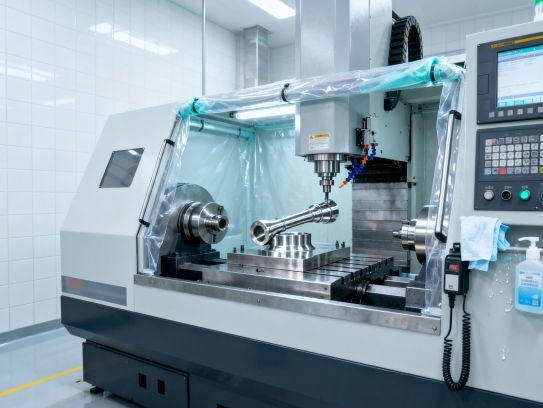河南金属表面黑化处理工艺解析提升耐磨性与美观度的专业解决方案
微信号
wxid_9nbq66imej3y22
一、什么是金属表面黑化处理?
金属表面黑化处理是通过化学或电化学方法,在金属(如钢铁、铝合金等)表面生成一层致密的黑色氧化膜。这层膜厚度通常在1-3微米之间,虽薄却能显著提升基材的防护性能。以河南某农机配件厂为例,其生产的齿轮经我司黑化处理后,盐雾测试时间从原来的24小时延长至72小时以上,有效解决了田间作业中的锈蚀问题。

二、河南市场的典型需求与应用案例
河南作为农业和装备制造业大省,对金属表面处理的诉求集中在两个方向:
1. 功能性需求:如煤矿机械中的液压杆需长期耐受潮湿环境。我们通过碱性高温黑化工艺(温度控制在140-150℃),使工件表面形成四氧化三铁层,摩擦系数降低30%,同时避免井下作业时的反光干扰。
2. 装饰性需求:郑州某电梯厂商的轿厢装饰板要求哑光黑色效果且不脱色。我们采用常温发黑技术搭配封闭剂处理,既保证了色彩均匀性,又避免了传统喷涂的剥落风险。
三、昆山挚诚精密的工艺优势
1. 定制化解决方案:
- 针对高碳钢与低碳钢的不同特性调整配方。例如洛阳某轴承企业的高碳钢滚珠采用“预脱脂→酸洗→二次氧化”流程,避免氢脆风险;而安阳某家具厂的低碳钢支架则通过“铜盐催化法”获得更细腻的表面纹理。
2. 环保型技术应用:
传统黑化工艺可能使用亚硝酸盐等有害物质。我们推广的无磷无铬钝化技术已成功应用于南阳某新能源汽车电池壳体项目,废水处理成本降低40%。
四、如何判断黑化处理的质量?
客户可通过三个简单方法初步验收:
- 目测检查:优质黑化层呈均匀深黑色(如轮胎橡胶色),无红斑或白斑。我们为周口某阀门企业提供的样品曾因色泽不达标排查出前处理除油不彻底的问题,后改进超声波清洗参数后解决。
- 擦拭测试:用白布蘸酒精擦拭20次无明显脱色(装饰件关键指标)。
- 附着力测试:划格法测试后氧化膜无剥落(适用于需后续喷涂的工件)。
金属表面黑化处理看似简单,实则需精准控制药液浓度、温度及时间参数。昆山挚诚精密依托10年行业经验及ISO 9001质量管理体系,已为河南地区超200家企业提供稳定可靠的黑化加工服务。无论是提升农机零部件的环境适应性,还是满足高端消费品的审美需求,我们都能够提供科学的技术支持与高效的交付保障。(注:具体工艺选择需根据材料成分及用途评估)
通过上述案例不难发现——专业的表面处理不仅是“涂一层黑色”,更是材料科学与工程实践的深度结合。
TAG:河南金属表面黑化处理,金属表面黑化处理作用,金属表面发黑处理厂家,金属表面发黑处理价格
微信号
wxid_9nbq66imej3y22
 上一篇
上一篇
